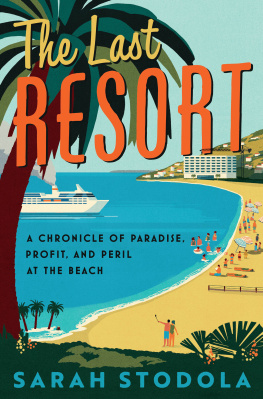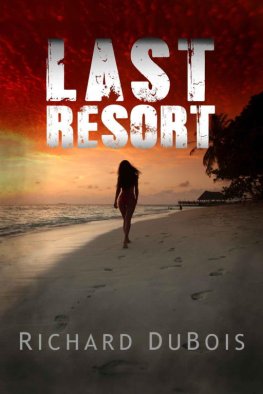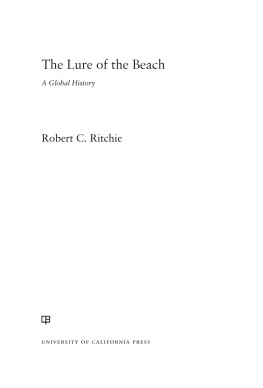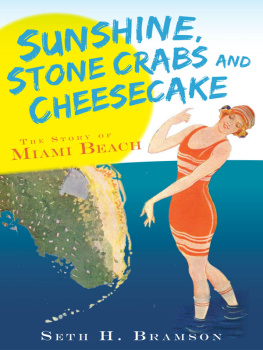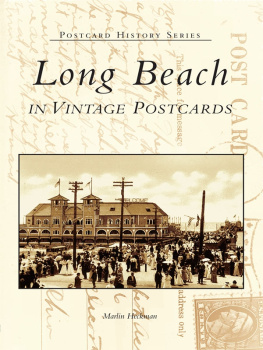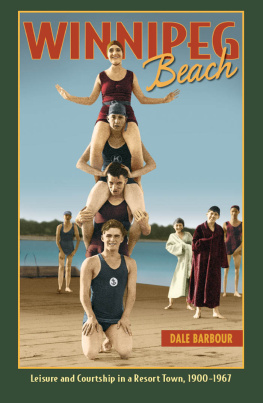Contents
Guide
Contents
I grew up, as you probably did, with an ingrained concept of the beach as shorthand for paradise. Lifes a beach, the beach is great, and so is life, if youre at the beach. I accepted that there was no more coveted environment than 82 degrees, with a light breeze tousling the leaves of a palm tree as it provided sun-dappled shade for a lounge chair and a pia colada, a soundtrack of lapping waves underscoring the vibe. Still today, I can think of no more surefire way to elicit expressions of envy from another person than by mentioning a recent trip to such a place. This person will hate you. Tough life, she will say, enjoying the sarcasm. Such is the position the beach resort has attained today. It plays host in our collective imagination to the highest form of leisure.
Its a phenomenon that has always struck me as thorny. The envy is unexamined, almost compulsory. It treats loving the beach as an innate human characteristic, although before the late eighteenth century, the oceans mostly instilled fear in general populations the world over and were avoided altogether if possible. Even at the first seaside resorts, the beach and ocean were not cherished, but tolerated in service of ones health.
A couple of centuries later, the allure of the beach resort came to be considered self-evident, a truth seldom questioned. The presumed universal appeal of beaches has been mirrored back to us by the media, leaving little room for serious consideration of the major global industry that has bred economic and social inequalities in many a locale, as well as contributed to the climate crisis while coming under existential threat from ita paradise both threatening and threatened. With regard to these lapses, The Last Resort is meant as both corrective and warning.
I consider my relative newcomer status to resort life to be an asset in this pursuit. Mine is not a family historically concerned with the beach. My parents grew up in small towns in Wisconsin, where the oceans were irrelevant to everyday life. As a child, my mom took an annual family road trip in the 1950s to Florida, on two-lane Highway 41 all the way. The journey took three days in each direction. Once in Florida, she tells me, the family spent more time inland than at the shores. My dad saw the ocean for the first time at age twenty-twothe Indian Ocean, as it turns out, after he arrived in Tanzania with the Peace Corps. I grew up with their view of the beach as incidental, although I did recognize its elevated role in the culture at large, from movies and television to the aforementioned envy I saw when classmates traveled to beach destinations during school holidays.
When I finally began traveling to beach destinations regularly, as a concession to a relationship with a surfer, I came to the culture as an outsider. By this time, I was publishing travel journalism, which familiarized me with the always-sunny disposition required of destination coverage. After so many hours spent endorsing places as a default position, I knew I wanted to look at them through a more critical lens.
This aligned with my tendency to approach my beach breaks analytically, and anthropologically. I often enjoyed the sun and the snorkeling and the views, but I found the sanitized bubbles in which resorts existed curious. Their common culture, so widely treasured, necessitated further examination. To be honest, beach resorts weirded me out a littletheir insistence on indolence, and on forgetting the world outside, both the one back home and the one immediately beyond the property; their soundtrack of Bob Marley and Jimmy Buffett; the amount one has to fork over for a margarita. Ive often found resorts peculiar brand of utopia more disquieting than relaxing. At the same time, Ive seen economies and cultures transformed by them. Sometimes for better, and sometimes for worse, but always in ways that seem coated with ambivalence.
Ive traveled around the globe to destinations that have been singularly affected by beach tourism, to understand who goes where and why, to document resorts underreported role in economies large and small, and to contend with climate changes impact on them. Ive chatted at the pool bar with honeymooners and hedge funders and spring breakers. Ive visited once-remote villages that have been altered completely by the arrival of a resort. Ive seen how the explosion of the global middle class is forcing travel companies to evolve and creating new ones to compete with them. Ive seen prominent resort areas going to great lengths to preserve the eroding shorelines that buttress their prosperity, even as their behavior contributes to an unsustainable carbon footprint via air-conditioning, excessive water consumption, golf courses, coral reef damage, and persistent emissions generated by importing food and drink to remote locations. My hope is that, together, the stories in The Last Resort will create a nuanced understanding of the beach resort industry where none currently exists.
To see the locations necessary in completing the research, long-haul flights were often required, making me an accessory to the industrys growing carbon footprint. I purchased offsets for all flights taken in service of writing this book, while acknowledging that doing so is not enough to rationalize the emissions.
Unease with the concept of the beach as paradise may be sinking into our psyches. In 2021, despite the promise of revived international travel during the waning days of the COVID pandemic, we largely sat on our sofas, presented with a string of TV shows and movies in which things go sideways at the beach: In White Lotus, guests and staff at a five-star resort in Hawaii grapple with their place on the spectrum of white privilege and inequality. In M. Night Shyamalans Old, a family on vacation heads to a beach that compresses their entire lives into a single horrifying day. And Nine Perfect Strangers, filmed in Byron Bay, Australia, starred Nicole Kidman as a wellness guru with sinister undertones running a resort for troubled wealthy folks. Even Bachelor in Paradise, the stalwart show putting former contestants on The Bachelor and The Bachelorette together on a beach in Mexico, documented the cast being evacuated in the face of an approaching tropical storm. The beach resort became a de facto setting for stories probing our contemporary fears and concerns.
The Last Resort on one hand implies an end to the beach vacation as we know it. With sand that cant be relied on to stay in place, and water threatening to inundate properties, developers may eventually find the current resort model untenable. Its happened before: There was a last resort in Baiae, ancient seaside escape of the Roman elite, and a last resort in Rockaway, New York, once the preeminent beach destination in America. On the other hand, we are unlikely to see the global beach resorts definitive demise in our lifetimes. We may instead have a last resort of another kind, one that comes when all other options have been exhausted, when weve failed to curb climate change and have no choice but to accommodate its directives. This book aims to find out where the beach resort is headed, as a last resort.
When I first encountered Railay, a small peninsula of unreasonable beauty protruding into Thailands Andaman Sea, I was wallowing in the demise of the major relationship of my twenties. The timing compounded my mood2009, the thick of the financial crisis, when Id wake up, open my laptop, and read another email from another laid-off editor who would no longer be hiring me. My formerly live-in boyfriend had returned to his native England, and my state of mind was such that for several months I took up smoking, not in earnest, but melodramatically, sitting in the pocket window of my apartment, glass pushed open into the dead of winter.

